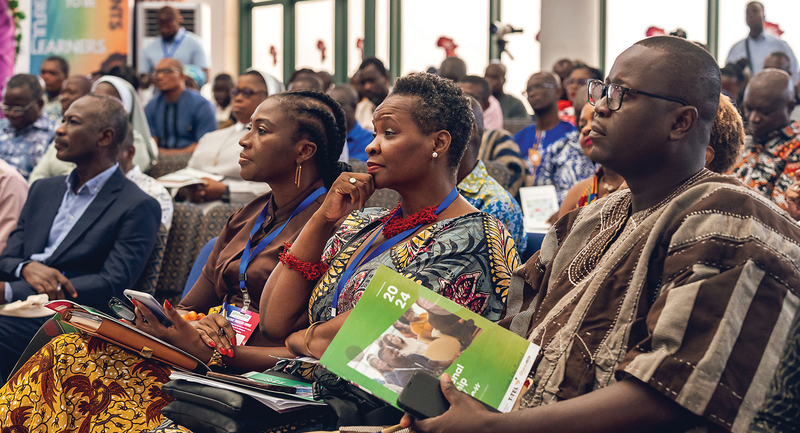By any measure, the landscape of U.S. public education looks different today than prior to the pandemic, three school years and one epoch ago. For starters, 1.2 million students have exited public school districts (AEI, 2022). And while states, school districts, and public health officials were wrestling with disruptive COVID mitigation measures—masking, remote learning, quarantine rules, and the like—the culture wars entered schools in the form of fights over critical race theory, gender ideology, curriculum battles, book bans, and other hot-button social issues. This created further tensions.
Hanging over all of this is the rock-bottom basic problem of academic performance. Student achievement loss during the pandemic "is far greater than most educators and parents seem to realize," Harvard economist and education policy researcher Thomas Kane wrote recently (Kane, 2022). Whether or not this was inevitable or avoidable is beside the point. As it shakes off its post-COVID rust, American public education faces an unprecedented crisis of confidence and trust, all at a time when there are more opportunities than ever for parents to vote with their feet and exit local school districts.
"Adults are free to disagree about whether school closures were justified or a mistake. But either way, children should not be stuck with the bill for a public-health measure taken on everyone's behalf," Kane noted.
What are some of the key factors behind this mess? Randi Weingarten, president of the United Federation of Teachers, co-wrote an impassioned essay in Time alleging that "far-right advocates of privatizing public education are using Big Lies to undermine public schools" (Weingarten & Edelman, 2022). But data compiled by my American Enterprise Institute colleague Nat Malkus suggests a simpler explanation: declines in public school enrollment appear to correlate with the response to the pandemic (AEI, 2022). Where districts returned to in-person instruction quickly, enrollment has largely recovered; those that stayed remote the longest continue to lose students. "I thought we'd see a relationship with in-person learning, but I didn't think it would be this strong," Malkus said.
The Perils of "Insiderism"
What seems undeniable is that whatever the immediate cause, in many quarters, a fog of distrust has descended on U.S. public education. In his 2020 book, A Time to Build, Yuval Levin wrote that we lose trust in an institution "when we no longer believe that it plays [an] ethical or formative role, serving as a forge of integrity for the people within it. … Rather than shaping the people inside it, it comes to be deformed by them for their own ends" (Levin, 2020). Levin labels this betrayal "insiderism" and describes it as "perhaps the most obvious factor driving the loss of faith in institutions."
Whether or not "insiderism" is at the root of some parents' growing discontent with public schools, it seems indisputable that public education in recent years has not always operated with the interests of parents foremost in mind. This is critical for school leaders to understand as they develop efforts to improve parent engagement today, and it speaks to the need for a culture reset in public education to rebuild trust in this essential institution. A strong case can be made that many school systems are at risk of losing the plot, as they become estranged from many parents in the pursuit of their own internal agendas. The pendulum was long overdue to start swinging back.
That this is starting to happen was clearly visible in last year's gubernatorial election in Virginia. You might recall that the election changed direction almost overnight when Democratic candidate Terry McAuliffe said in a debate, "I don't think parents should be telling schools what they should teach." Parents disagreed in large enough numbers to swing the election to Republican Glenn Youngkin, who had trailed in the polls for much of the campaign.
To be fair, McAuliffe was merely summarizing the standard way of operating in public education, where "parent engagement" is often given mere lip service, limited to attendance at parent-teacher conferences and supporting academic and behavior demands placed on students. And there are practical questions about how much say parents should have over curriculum. But the remark touched a nerve, coming as it did at a time when parents in many states and districts, already rubbed raw by COVID-19 disruptions, were grappling with trends in school policy and curriculum that to many seemed to be purely ideological. This contributed to a sense among some parents, not merely social conservatives, that teachers and schools were spending more time preaching than teaching. Viral videos of parents complaining at school board meetings, while at times extreme, attested to this general feeling.
Education and Activism
Social reformers have a long history of seeing schools as venues—and children as vessels—for their agendas, from assimilating immigrants and the temperance movement more than a century ago to promoting bilingualism and raising awareness of climate change more recently. Many teachers unapologetically view their work as a form of activism, a mindset explicitly encouraged in many colleges of education and teacher preparation programs. Nor is this a recent development. When the American Educational Research Association published its comprehensive review of teacher education nearly 20 years ago, it reported that
over the last decade or so, conceptualizing teaching and teacher education in terms of social justice has been the central animating idea for education scholars and practitioners who connect their work to larger critical movements. Advocates of a social justice agenda want teachers to be professional educators as well as activists committed to diminishing the inequities of American society. (Cochran-Smith & Zeichner, 2005, pp. 45–46)
Clearly, however, not every stakeholder accepts or is comfortable with educators' embrace of social justice imperatives and ideologies, especially when these agendas are invisible to parents, baked into policy initiatives, or presented as uncontroversial. And here again, recent events have conspired to disrupt the balance: the rise of increasingly assertive diversity, equity, and inclusion agendas in the aftermath of summer 2020 racial activism, exemplified in many schools' commitment to purported anti-racist pedagogies and curricula, coincided with pandemic-driven remote education. With lessons beamed onto kitchen tables daily, the black box of classroom practice was pried open.
A strong case can be made that many school systems are at risk of losing the plot, as they become estranged from many parents in pursuit of their own internal agenda.
An Opportunity to Reset
One doesn't have to agree with the specific complaints undergirding the recent rise in parent activism to see it as an inevitable rebalancing in the power and permission structures of public education. Despite the battered trust, there is still a strong foundation on which to restore or reinforce faith in public education, at least locally. It is not news that Americans have long evinced little confidence in public education in general, while still holding their own children's schools in high regard. Gallup's "Honesty/Ethics in Professions" survey has long shown grade school teachers among the most trusted professionals in the country. At the pandemic's start in 2020, trust in grade school teachers stood at 75 percent. Today, it's 64 percent—a troubling all-time low, but still among the highest scores in the Gallup survey (Gallup, 2021).
That suggests a base to build upon, but it will require a spirit of openness, candor, and perhaps a shift in mindset. The shut-your-door-and-do-what-needs-doing culture of teaching has long fed an independent contractor mentality that can estrange teachers from other stakeholders, principally parents. Educators must also understand and take to heart that, legally speaking, they have limited latitude to impose their views on a captive audience of students. One step toward supporting the needed shift, as my colleague Tracey Schirra and I have argued, is for schools and districts to consider adopting a code of ethics that encourages schools to teach essential yet controversial topics while valorizing viewpoint diversity (Pondiscio & Schirra, 2021).
The stakes for traditional public school could not be higher. While affluent parents have always exercised choice and the ability to exit, the past two years of disruption to school routines have provided ample opportunities for new habits to form and take root among families across the socio-economic spectrum, and for motivated parents to seek out alternative options. This is clear from the rising rates of homeschooling and growth in micro-schools and remote-learning programs. It seems certain that public schools have spent down a considerable amount of goodwill they have enjoyed for generations. Some effort to rebuild it would be wise.









